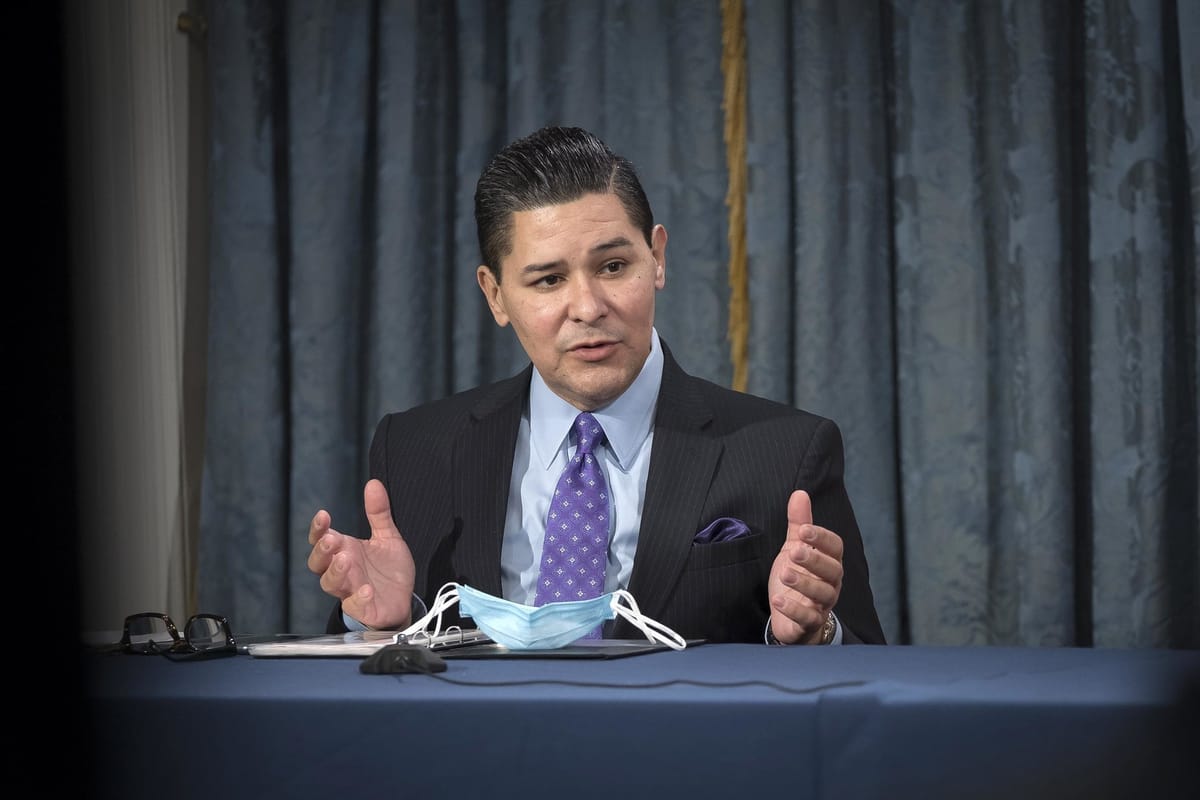No More G&T Screening After This Spring, Plan Calls For Changing Teachers Perceptions?


Following yesterday’s breaking news that NYC DOE will no longer administer the Gifted & Talented test to select children for academic tracking after this spring, Mayor Bill de Blasio and Schools Chancellor Richard Carranza spoke about it at a press conference this morning, promising that the changes will be implemented after much outreach to parents and educators.
Carranza said that it all comes down to the need for high expectations of all school children when it comes to their abilities and talents, not just those few that pass the test.
The test is open to 4-year-olds across the city and is typically administered in January. About 15,000 of the 65,000 or so 4-year olds in the city take it, and about 2,500 of them then get tracked into either district or citywide programs for accelerated learners, though the city has been cutting back on such programs for years now.
The Gifted and Talented Test will be administered this April for the last time in this fashion. It’s a single test that carries FAR too much weight.
We will create a fairer, more equitable way to engage our students. pic.twitter.com/65XTWXjPA3— Mayor Bill de Blasio (@NYCMayor) January 13, 2021
For the incoming kindergarteners, the test will still be administered in April, though for the last time.
“At this point in the year, a lot of families had already prepared. They were counting on the opportunity. We respect that. So, we’ll go forward, but we will not be providing that test in the future.”
Mayor said that we “need a much better approach to serving kids who have a lot of capacity,” and that “we’re also extremely focused on making sure that this moment, this horrible moment of the coronavirus crisis, that some good comes out of it.”
Since Mayor Bill de Blasio’s term expires at the end of this year, he really is setting up the playing field for the next Mayor, creating conditions and promises he will have no say over, including promises of a lot more individualized education for all kids using new digital tools, courtesy of the pandemic. However, there has been not a single public briefing on the remote education that the great majority of the city’s children are receiving, how many kids are tuning in, or how well such tools and digital learning are working to accelerate individual learning.
“I guarantee you, there’s a hell of a lot more kids who have talents and abilities and the need for special opportunities than just the few who have been in Gifted and Talented to date,” he said.
One of the main criticisms of the G&T program has been that it is not representative of the racial composition of the city’s children, and skews heavily towards Asians.
Mayor promised an “intensive public engagement process through the spring and into the summer to really work with stakeholders of all kinds, parents, elected officials, community leaders, obviously our PEP to think through what’s the right approach for the future,” and that he’ll announce the new approach by September.
Neither the Mayor nor DOE has a good record on community engagement when it comes to school integration and segregation and the SHSAT and G&T programs.
“We’ve learned from times from we didn’t do that engagement well enough,” Mayor acknowledged. “And, certainly, with specialized high schools, we did not. That was our mistake. But in this case, we have a very clear timeline.”
What do they hope to learn that they do not know yet after years of commissions and advocacy from both sides on this issue? It’s not really about learning new ideas. They need buy-in from parents and educators, and that is not an easy task, especially in the middle of a pandemic, when parents are among some of the most exhausted.
“What we need is that engagement process. We need to work with parents with CEC’s, with PTA’s. We need to work with the PEP. We need to work with elected officials. We need to get out there and really talk through the possibilities and figure out the one that makes the most sense. We want something sustainable,” Mayor acknowledged.
“It’s really important to get it right, but I think the reason that this becomes so timely, additionally, is the Chancellor and I are fully committed to doing something very different, starting in September, with a more individualized approach to education, with a greater use of digital options to augment the work of our classroom teachers.”
Schools Chancellor Richard Carranza did not spell it out when he touched on the need for high expectations of all school children when it comes to their abilities.
“There’s a very powerful quote that I share with my community every year, and it’s from a six-year-old child that says my teacher thought I was smarter than I was, so I was. That’s the foundational cornerstone of what we’re talking about.”
If that’s the case, the issue does not seem to be with the kids or tests, but how the adults perceive them.




